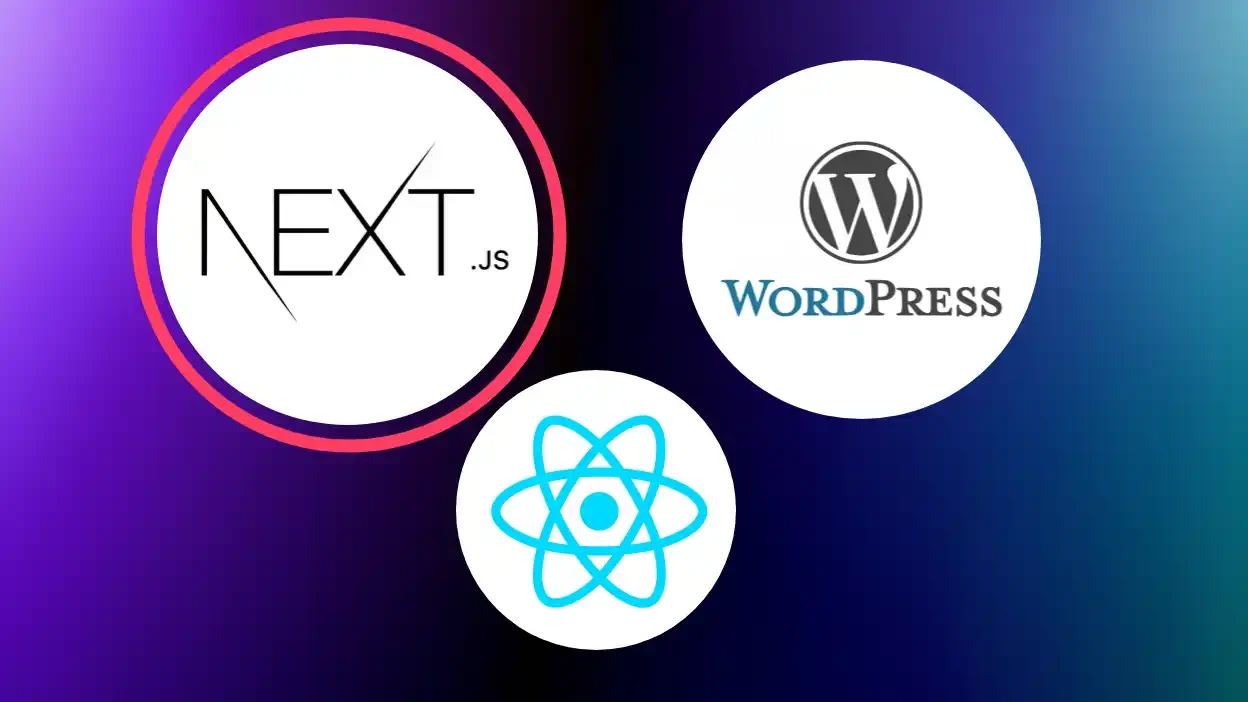When building a website or an e-commerce platform, choosing the right technology can make a huge difference in speed, cost, performance, and scalability. Next.js and WordPress are two of the most popular options today, but they serve very different purposes. Here’s a comprehensive comparison to help you decide which fits your needs.
1. Speed and Performance
Next.js:
- Server-Side Rendering (SSR) and Static Site Generation (SSG) make Next.js extremely fast. Pages can load instantly because HTML is pre-rendered.
- Supports Incremental Static Regeneration (ISR), meaning you can update content without rebuilding the entire site.
- Minimal dependencies and modern frontend frameworks (React) ensure smooth performance.
- Ideal for high-traffic websites, landing pages, and web apps where speed is crucial.
WordPress:
- WordPress is PHP-based and dynamically generates pages on request, which can slow down performance if not optimized.
- Speed can be improved with caching plugins or CDNs.
- Heavy themes or too many plugins can significantly affect load times.
- Better for blogs or content-heavy sites where speed is not mission-critical.
Winner: Next.js — consistently faster out of the box, especially for interactive or dynamic websites.
2. Cost of Development and Maintenance
Next.js:
- Requires developers familiar with React and Node.js; not beginner-friendly.
- Hosting can be more expensive than shared WordPress hosting but gives scalable cloud deployment (Vercel, AWS, Netlify).
- Long-term costs may be lower due to fewer plugins and less maintenance.
WordPress:
- Can be set up cheaply using shared hosting ($3–$10/month).
- Many free themes and plugins reduce initial development cost.
- Maintenance can be costly if you rely heavily on premium plugins or themes, plus security updates and backups.
Winner: WordPress for small, simple websites; Next.js for scalable, performance-oriented sites where developer cost is acceptable.
3. Flexibility and Customization
Next.js:
- Full control over frontend and backend architecture.
- Easily integrates with APIs, headless CMS, or e-commerce systems like Shopify or WooCommerce API.
- Perfect for custom web apps or unique website designs.
WordPress:
- Large ecosystem of plugins and themes for quick setup.
- Limited flexibility if you want highly custom or modern interfaces; may require custom PHP development.
- Ideal for non-developers who want to launch quickly.
Winner: Next.js for ultimate flexibility; WordPress for convenience and rapid deployment.
4. Best for E-commerce
Next.js:
- Often used as a headless front-end for e-commerce platforms like Shopify, BigCommerce, or WooCommerce REST API.
- Can handle high traffic and complex transactions without slowing down.
- Modern design and fast checkout improve conversion rates.
WordPress:
- WooCommerce plugin makes WordPress a popular e-commerce choice.
- Quick to set up and manage with plugins for payments, shipping, and inventory.
- Performance can degrade with too many products or plugins unless optimized properly.
Winner: Next.js for large-scale, high-performance stores; WordPress/WooCommerce for small to medium stores or businesses on a budget.
5. Security
Next.js:
- Minimal attack surface due to modern architecture and fewer dependencies.
- Hosting on Vercel or other cloud platforms adds extra security layers.
WordPress:
- Often targeted by hackers due to popularity and outdated plugins/themes.
- Requires regular updates and security monitoring.
Winner: Next.js — inherently more secure for large-scale or sensitive applications.
6. SEO and Content Management
Next.js:
- SEO-friendly thanks to server-side rendering and meta tag control.
- Works well with headless CMS like Contentful, Strapi, or Sanity.
WordPress:
- Built-in CMS and plugins like Yoast SEO make content management easy.
- Excellent for blogging or news websites.
Winner: Depends on use case — WordPress is easier for content-heavy sites; Next.js excels when SEO is combined with speed and dynamic functionality.
✅ Conclusion: Which One to Choose?
| Factor | Next.js | WordPress |
|---|---|---|
| Speed & Performance | Excellent, SSR/SSG, ISR | Moderate, depends on caching |
| Cost | Higher dev cost, lower long-term | Low setup cost, higher maintenance |
| Customization | Full control, flexible | Limited by themes/plugins |
| E-commerce | Best for scalable stores | Good for small-medium stores |
| Security | High | Moderate, needs constant updates |
| SEO & Content | Excellent for dynamic sites | Excellent for blogs/news sites |
Summary:
- Use Next.js if you want high-performance, secure, scalable, and modern websites or e-commerce platforms.
- Use WordPress if you need a budget-friendly, easy-to-manage website or a blog with fast deployment and minimal coding.
In 2025, businesses with serious growth ambitions are increasingly leaning toward Next.js for speed, modern UX, and long-term scalability, while WordPress remains a solid choice for content-driven sites or small e-commerce shops.
